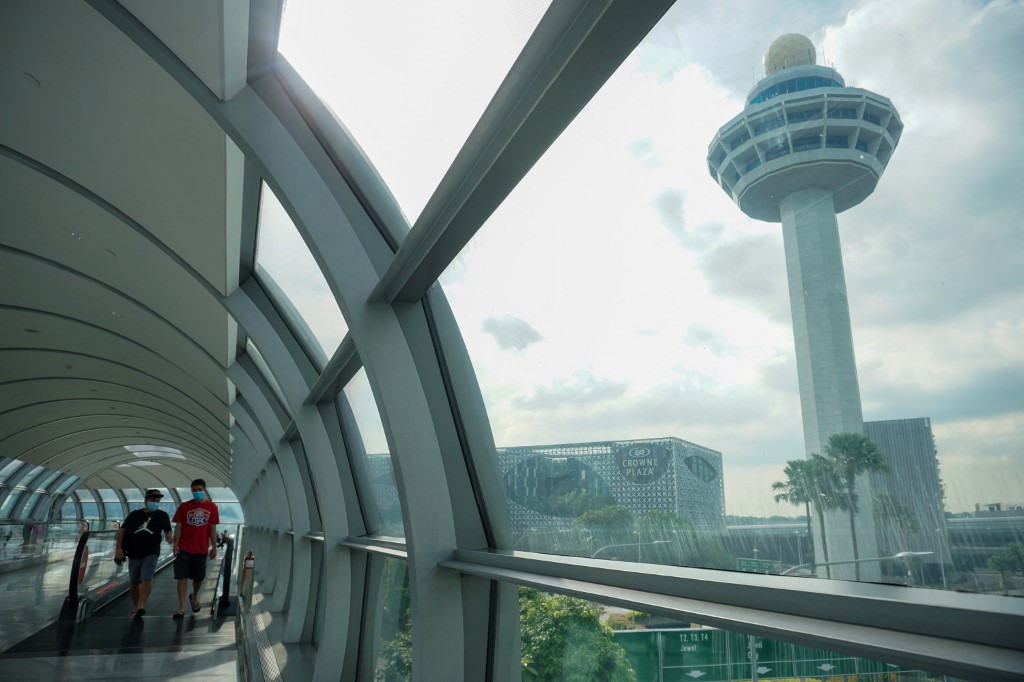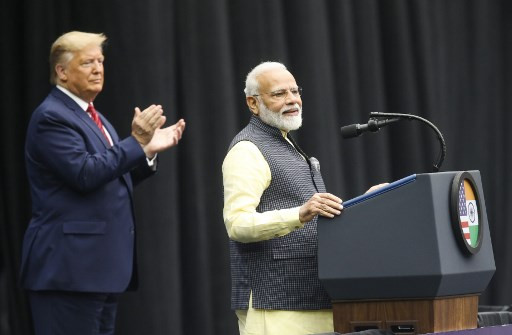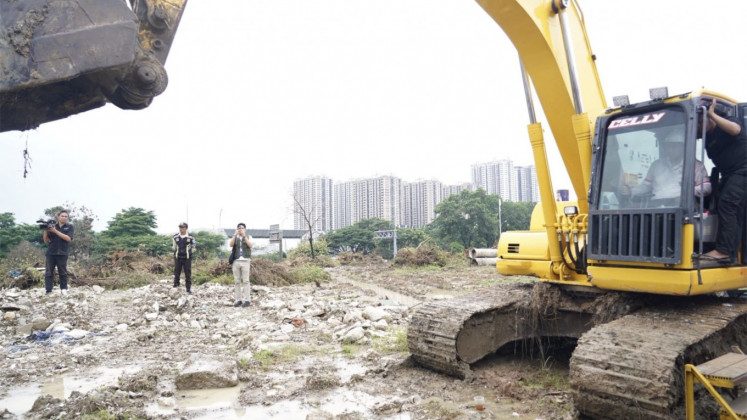Popular Reads
Top Results
Can't find what you're looking for?
View all search resultsPopular Reads
Top Results
Can't find what you're looking for?
View all search resultsSingapore to impose green fuel levy on flights from 2026
The plans announced at an industry summit on the eve of the Singapore Airshow aim for all departing flights to use 1 percent sustainable aviation fuel (SAF) from 2026, rising to 3-5 percent by 2030, subject to global developments and the wider availability and adoption of SAF.
Change text size
Gift Premium Articles
to Anyone
T
ravellers will need to bear the cost of the transition towards green jet fuel, Singapore's transport minister said as he announced the city state's plans for a levy on flight ticket prices as the aviation industry seeks a viable funding model.
The plans announced at an industry summit on the eve of the Singapore Airshow aim for all departing flights to use 1 percent sustainable aviation fuel (SAF) from 2026, rising to 3-5 percent by 2030, subject to global developments and the wider availability and adoption of SAF.
"It will hurt our air hub and our economy, and raise the cost of travel for passengers if we are overly ambitious with our sustainability goals," Transport Minister Chee Hong Tat said of the need for modest targets initially.
Aviation produces about 2 percent of the world's emissions but is considered one of the hardest sectors to decarbonise.
European regulators have been the most active in trying to boost the use of SAF, introducing rules that force airlines to meet minimum requirements for its use. Fuel suppliers are obliged to ensure 2 percent of fuel at EU airports is SAF by 2025, rising to 6 percent in 2030 and 70 percent in 2050.
Under the European model, the carrier pays for the blended fuel and decides whether the cost will be passed on to passengers in ticket prices.
Singapore's levy will vary based on factors such as the flight distance and travel class.
For example, in 2026 the price of economy class tickets on direct flights from Singapore to Bangkok, Tokyo and London will rise by by an estimated S$3 ($2.23), S$6 and S$16 respectively to pay for the SAF, said the Civil Aviation Authority of Singapore, which developed the plan in consultation with industry and other stakeholders.
But if SAF prices rise throughout the year, Singapore will not have raised enough cash from the levy - the level of which is set at the start of the year - to fund the full 1% and it could miss target, Tat said.
SAF, which can be made synthetically or from biological materials such as used cooking oil or wood chips, currently accounts for 0.2 percent of the jet fuel market and costs up to five times more than conventional jet fuel.
"A big challenge that is contributing to the high costs is actually securing bio-derived feed," said Ong Shwu Hoon, Asia Pacific fuels vice president at ExxonMobil Asia Pacific.











